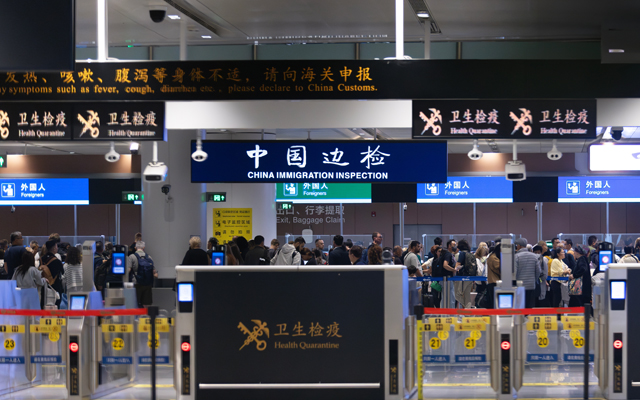China’s inbound corporate travel market is showing strong recovery, largely thanks to the Chinese government’s recent visa-exemption policies, which have made it easier for corporate travellers to enter the country.
Calvin Xie, general manager Greater China, FCM Travel, observed that “more companies are considering China as a MICE destination thanks to the (30-day) visa-exemption policy, which now covers 38 countries (such as Singapore, Malaysia, and Japan) since 2024”.

Flight Centre Travel Group has chosen to hold its ANZ leadership conference in Shanghai in October 2024. It flew 170 senior leaders from Australia and New Zealand into the city.
In addition to the visa exemption policy for 38 countries, the Chinese government also rolled out a 240-hour visa-free transit policy that covers 54 countries – such as Canada and UK – since December 2024.
Jonathan Kao, managing director North Asia, BCD Travel, agreed there has been a “notable resurgence in business-related travel”.
He said: “The extended visa-free arrangements and simplified application procedures, though not specifically tailored for corporate travel, are extremely beneficial for business travellers.”
As last-minute business trips are “quite common”, simplified visa processes and visa-free policies mean employees can easily arrange trips to China without the previous “complex and time-consuming” procedures, Kao noted.
BCD Travel has seen an uptick in enquiries and bookings to major economic hubs like Beijing, Shanghai, Guangzhou and Shenzhen, while Japan and South Korea are significant Asian sources of inbound corporate travel to China. From Europe, Germany and the UK are key markets. German companies, especially those in the automotive and industrial machinery sectors, as well as UK-based financial institutions and technology firms, contribute substantially to corporate travel volume.
At FCM Travel, high-technology and financial sectors do well, Xie pointed out.
Martin Go, growth manager, TruTrip, has seen an uptick in business travel from Singapore, Malaysia, Hong Kong, Taiwan, and Thailand to China, with travellers representing various sectors such as semiconductor, professional services, insurtech, and distribution and engineering.
Xie said the overseas expansion of Chinese companies is driving stronger outbound corporate travel from China than inbound.
“However, as inbound leisure travel keeps stimulating the economic recovery of China, it will potentially drive up corporate travel volume into China at a later stage in 2025,” he added.
TMC representatives say business travel to China comes with its challenges.
Xie opined that the relatively high cost of travel within China’s major Tier One cities, as compared to South-east Asia, persistent cultural and language differences, and varying payment systems continue to create obstacles for international business travellers.
Kao warned of “tough competition” from other destinations around the world.
“Countries like Singapore, Vietnam, and some European cities also offer attractive business environments, with their own set of incentives and advantages. China needs to continuously highlight its unique selling points, such as its large domestic market, advanced technological capabilities, and rich talent pool, to differentiate itself from competitors,” he elaborated.





















